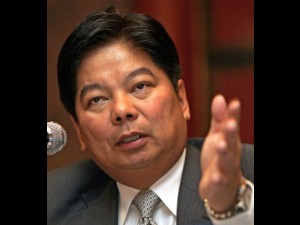PH markets sigh as Fed holds off tapering
Emerging markets like the Philippines on Thursday breathed a collective sigh of relief after the US Federal Reserve decided to postpone the tapering of its monthly asset purchases.
As a result, world markets can now expect the flow of foreign capital to continue at least for several more weeks.
The peso closed at 43.50:$1 on Thursday—48 centavos stronger than its previous close amid the improved risk appetite of investors following the Fed’s announcement. The local stock market likewise rallied.
Bangko Sentral ng Pilipinas (BSP) Governor Amando M. Tetangco Jr. said that asset prices, from stocks and bonds to currencies, in emerging markets would benefit from the US Fed’s decision to keep its so-called quantitative easing at $85 billion a month.
“The Fed action should be positive for risk appetite for emerging markets, including the Philippines,” Tetangco told reporters.
Article continues after this advertisementBucking most expectations, the Federal Open Market Committee (FOMC)—the US equivalent of the BSP’s Monetary Board—decided not to touch its bond-buying program.
Article continues after this advertisementThe US Federal Reserve has been pouring money into the US economy at a rate of $85 billion a month by buying US treasuries and other assets since late 2009. This was started to help spur economic activity in the United States, which slipped into a recession the year before.
The excess liquidity resulting from the bond-buying program pushed US interest rates down, prompting investors to look to emerging markets like the Philippines for better yields.
Last June, Fed Chairman Ben Bernanke announced that the bond-buying program would be scaled down gradually starting this year, with the aim of stopping it completely by mid-2014 as the US recovery gained traction.
Following the FOMC meeting this week, Bernanke said the start of the tapering would be moved to later this year to allow the US economy to gain more solid footing.
The challenge in the weeks ahead, Tetangco said, would be to manage the stream of liquidity expected to flood financial markets. This may lead to short-term spikes in asset prices.
“As is our policy, the BSP will maintain a presence in the foreign exchange market if, in our assessment, there is excessive exuberance in the financial markets,” Tetangco said.
The BSP, he added, has enough room to implement crucial measures to manage any surge in foreign capital.
